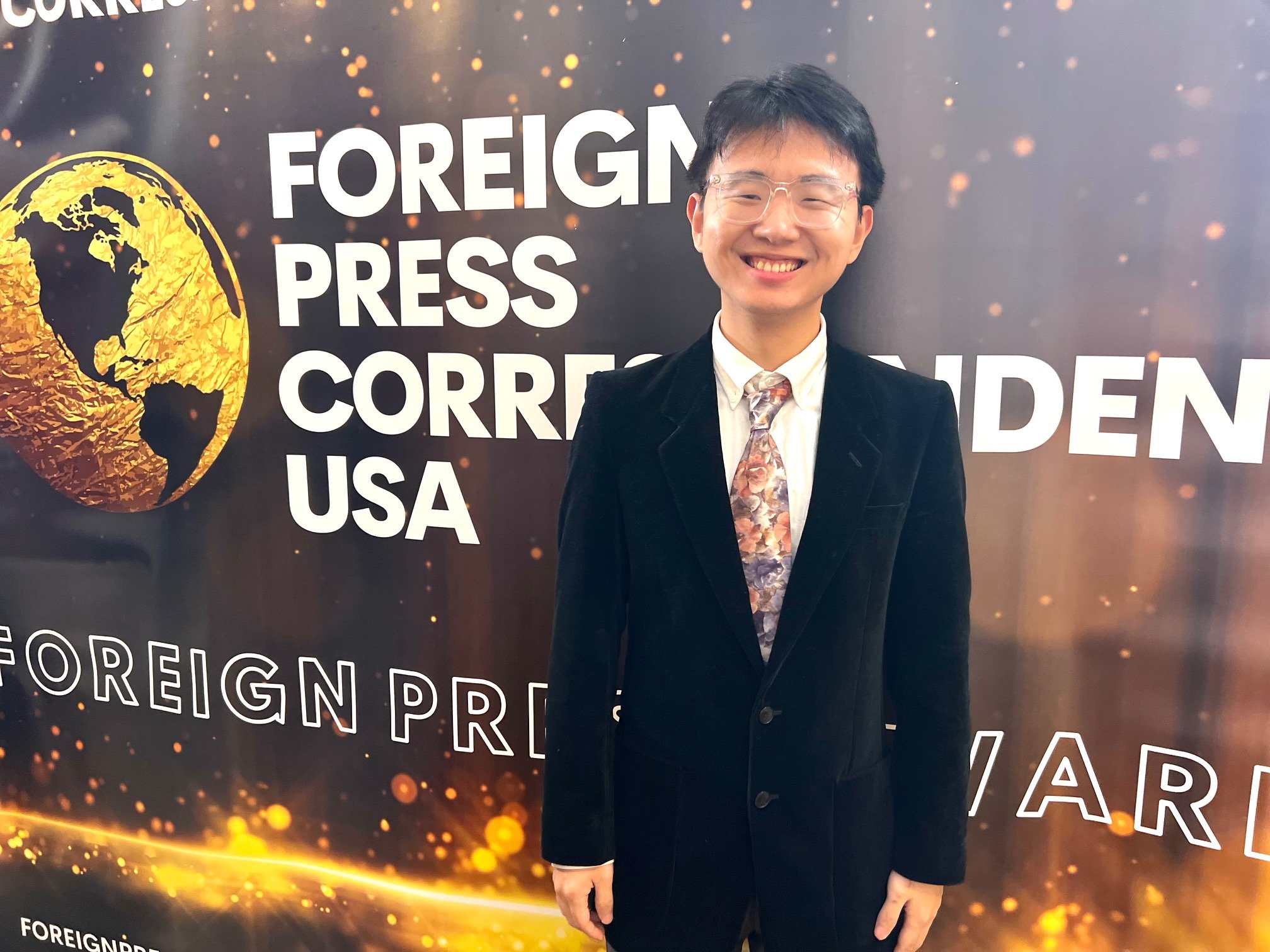"The AFPC scholarship award is a recognition of my efforts in journalism"

Yucheng Tang (China) is an AFPC Scholarship Awardee for 2022.
Yucheng Tang had never left the small county in eastern China where he was born before he went to Shanghai to study journalism. Yucheng is an AFPC Scholarship Awardee from the Association of Foreign Press Correspondents in the USA for 2022. During his university years, he saw the diversity and inequality of the world for the first time, meeting all kinds of people as an intern reporter for several publications, including The New York Times, where he profiled a group of Chinese high schoolers who produced a film exploring transgender identity. After graduation, he traveled across China, working as an investigative journalist at Southern Weekly and then as a senior writer at Renwu Magazine (“People”). Now he studies at New York University’s Literary Reportage MFA program. In addition to China-focused topics, Yucheng has a passion for stories at the intersection of technology, science, humanity, and stories about Asian immigrants in the US.
Yucheng Tang from China received his award from Damon Jones, the Chief Communications Officer of multinational goods manufacturing giant Procter & Gamble, during the Annual Foreign Press Awards Ceremony on December 15, 2022, in New York.
What was the primary reason you chose to pursue your master's studies in the United States as a foreign journalist?
I have always wanted to become a bilingual writer and journalist, especially in an era when communication across language and cultural barriers is becoming increasingly important. I aim to hone my skills in English writing to reach a larger audience. I want to live, learn and work in a society that is different from China’s to diversify my perspectives. Having already worked as a journalist for a few years, I feel the depth of my thoughts and writing have been stuck at a certain level — I came here to find a breakthrough.
You were recently awarded a scholarship from the Association of Foreign Press Correspondents in the United States. How did you feel about this recognition?
This award is a recognition of the efforts I have made previously in this industry and gives me a chance to continue pursuing my journalism dreams. It fuels my passion and courage during the transition from my early career to the next stage. I am deeply appreciative of this honor.
As a journalist, how do you expect your studies and the support from the Association of Foreign Press Correspondents in the United States to help you advance your career?
My program at NYU will teach me how to use elegant writing and dogged reporting to write captivating articles, and enable me to touch on novel journalism formats, like audio reportage. As for the support from the AFPC-USA, in addition to the funding, I look forward to joining a welcoming community and a support group that can help me start my career as a foreign journalist in the US.
What made you decide to become a journalist? How do you hope to make an impact in the journalism field of your country of origin?
In my third year of high school, I read a book called What I Have Seen written by a Chinese journalist. I learned how empathy and reason could be combined to help get closer to the truth and produce influential journalism. I was so fascinated that right then I decided to major in journalism and become a journalist. I hope to constantly produce unbiased, uncensored, and powerful reporting for people in my country, no matter what format it is in.
As a foreign journalist, what defines your mission?
Two missions linger in my heart: sharing vivid, empathetic stories about China with an English-speaking audience, and telling three-dimensional US stories for the Chinese audience through a human lens.
What do you think is the greatest threat to journalism today?
This varies by country. In some countries, the greatest threat might be censorship. In others, it might be the lack of dialogue between different groups and the lack of empathy and understanding for those who hold different ideas from you.
What is the state of press freedom in your country of origin and how do you hope that your work will encourage more people to access independent and credible information?
China is a large and diverse country, sometimes distilled into simple soundbites and stereotypes. There are many nuanced questions that can be asked related to reporting there, but the one that stands out to me is the need for more human stories. I’m in the US to find a way to tell stories that can cut through politics, language, and cultural barriers.

